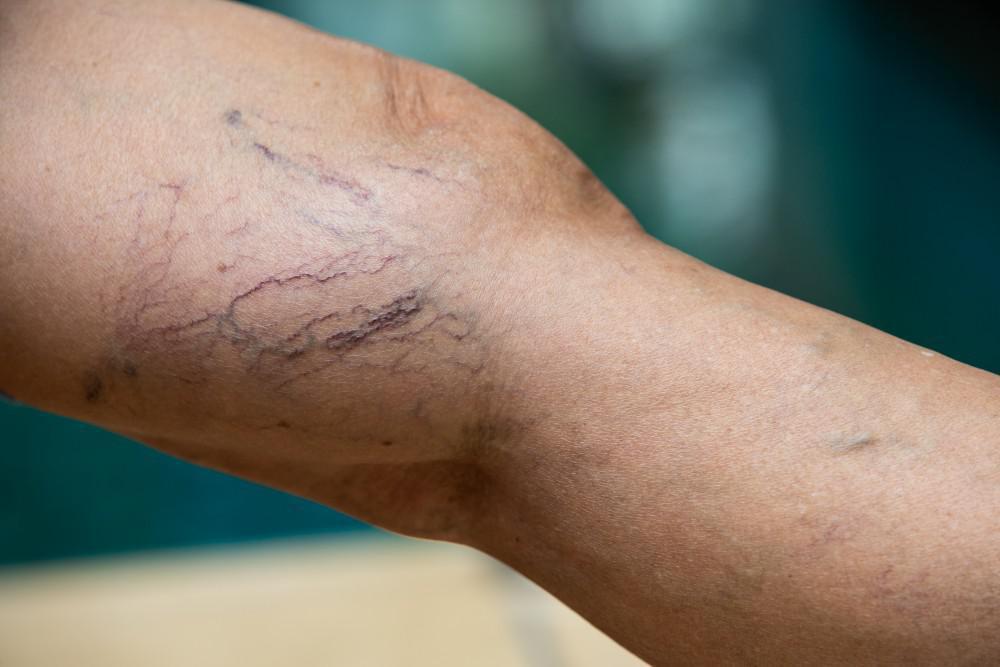
7 Things That May Be Causing Your Vein Condition

Millions of Americans suffer from vein problems, including varicose veins, deep vein thrombosis, and chronic venous insufficiency. Although everyone knows vein health is important, plenty of people have no idea what causes vein problems or if they’re at risk for vein disease.
With locations in Glendale, Goodyear, Anthem, and Canyon City, Arizona, Phoenix Heart offers state-of-the-art treatment for vein conditions, along with a healthy dose of education to help patients improve their vein health (and their overall health, too).
In this post, our team reviews seven common causes of vein problems, so you can play a proactive role in keeping your veins healthy.
#1 Genetics
You can’t blame everything on your family. But if you have vein disease, recent data shows it could be due at least in part to your genes.
In fact, researchers hope an evolving understanding of genes involved in vein health will lead to new treatments and medications to treat or even prevent vein problems. In the future, genetic testing could help identify people at risk for vein problems long before symptoms appear.
#2 High blood pressure
As blood circulates, it exerts pressure on your vein walls. Your veins are “designed” to withstand a normal amount of pressure. But if you have high blood pressure, the excess force can damage your vessel walls, causing them to weaken. It can also damage the tiny valves inside your veins, substantially increasing your risks of varicose veins, spider veins, and other vein-related health problems.
#3 Sedentary lifestyle
Your heart and veins work together to keep your blood flowing, but physical activity helps a lot, too. In fact, in your lower legs, your calf muscles play an important role in lower limb circulation, and if you don’t use those muscles on a regular basis, they can atrophy, interfering with healthy circulation.
#4 Obesity
Fatty tissue compresses blood vessels, not just in your legs, but in your belly, too. When veins are compressed, circulation is compromised, and once again, the pressure inside the veins increases. Plus, many overweight people also have high blood pressure or high cholesterol, both of which increase the risk of developing vein disease
#5 Pregnancy
Having a baby is exciting — but it’s also a time when your body is under extra physical strain. Your growing baby puts pressure on your blood vessels, potentially interfering with circulation to and from your legs and feet. Hormonal changes and an increase in blood volume can also have an effect on circulation.
#6 Smoking
Smoking allows nicotine, tar, and other chemicals direct access to your blood via your lungs. Those toxins take an immediate toll on your blood vessel health, damaging vein walls and increasing inflammation inside your veins. Smoking damages your arteries, too, increasing your risk of atherosclerosis — so-called hardening of the arteries.
#7 Standing a lot
Spending hours on your feet puts a lot of pressure on your feet and legs — pressure that can take a toll on your vein health. When you’re standing, it takes a lot more effort for blood in your feet and lower legs to circulate back up to your heart. Blood starts to “pool up” in your legs and feet, creating excess pressure inside the veins that can damage the veins and the vein valves.
Keep your veins healthy
Vein disease can cause an array of symptoms, including:
- Ankle or leg swelling
- Changes in skin color or texture
- Leg cramps or aches
- Restless legs
- Heaviness or fatigue in your legs
- Tenderness or warmth over the diseased vein
If you have any symptoms of vein disease or a family history of cardiovascular problems, a vein health evaluation is the first step in preventing more serious problems in the future. To schedule yours, book an appointment at Phoenix Heart online or over the phone today.
You Might Also Enjoy...


Stop Doing This if You Want to Avoid Vein Problems

5 Ways to Tend to Your Heart Health this Valentine's Day

What a Holter Monitor Can Reveal About Your Health

5 Uncomfortable Signs of Peripheral Artery Disease (PAD)

